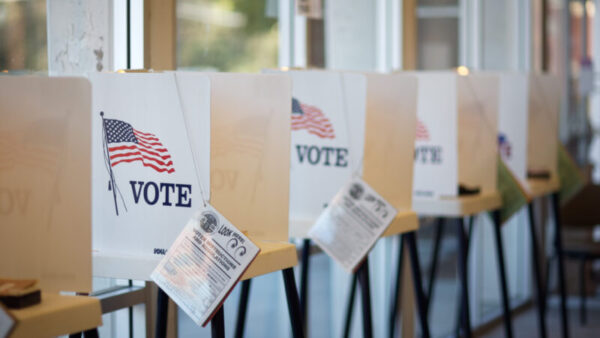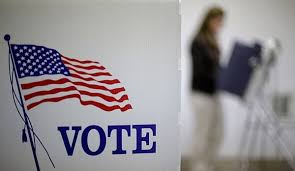New Hampshire Law Imposing A Severe Burden On The Right To Vote Found Unconstitutional
FOR IMMEDIATE RELEASE
CONTACT: 212-549-2666, media@aclu.org
Concord, NH - The New Hampshire Superior Court issued an order today permanently blocking the controversial 2012 New Hampshire law which added language to the state’s voter registration form that threatened to disenfranchise voters who live in this state.
"Today is a good day to be a New Hampshire voter," said Gilles Bissonnette, the staff attorney for the New Hampshire Civil Liberties Union and a member of the plaintiffs' legal team, which also includes William E. Christie and Benjamin Siracusa Hillman of Shaheen & Gordon, PA and Alan J. Cronheim of Sisti Law Office. "In striking down this law, the court recognized that constitutional rights, especially the most fundamental right to vote, are essential to a functioning democracy."
In its opinion, the Court found that the law’s added language to the voter registration form was "confusing" and an "unreasonable description of the law." The Court also explained that the added language was "unduly restrictive and/or unreasonable as applied to the State’s three purported interests." Rejecting each of the State’s reasons for the law, the Court concluded that "the continued use of the subject language is not reasonably necessary to advance any interest the State has set forth."
In June 2012, the New Hampshire legislature, overriding Governor John Lynch’s veto, passed Senate Bill 318, which added language to New Hampshire’s voter registration form. This added language requires those registering to vote to sign an affidavit agreeing that they are subject to the state’s residency laws. But, in order to vote in New Hampshire, a voter need not actually meet the definition of "residency." Instead, to vote in New Hampshire, one need only be "domiciled" here. This is the case because the definition of "resident" is very strict—as it requires an intent to live in the state for the "indefinite future"— and, thus, would disenfranchise voters who live in New Hampshire.
What does it mean to be "domiciled" in New Hampshire for voting purposes? It means that a voter must, more than any other place, have "established a physical presence" in New Hampshire and manifest "an intent to maintain a single continuous presence" here "for domestic, social, and civil purposes relevant to participating in democratic self-government." RSA 654:1, I. It does not mean that anyone can vote in New Hampshire simply if they want to or simply because they are in this state on election day. In other words, one is domiciled in New Hampshire for voting purposes if that person has a physical presence here and thinks of this state as "home."
As the Superior Court concluded, the 2012 law imposed a severe burden on voting rights because its "language is susceptible of being read quite reasonably to mean that by registering to vote, the person must" comply with residency laws. This "reasonable implication of the subject language," the Court concluded, "is a misstatement of the law."
Indeed, imposing such a "residency" condition on the right to vote—i.e., a condition that one have an intent to live in New Hampshire for the "indefinite future"—would disenfranchise, for example, many college students who live in New Hampshire, a newly-arrived executive with a firm intention to retire to his Florida cottage at age 65, a hospital resident with a career plan requiring her to spend a full three years in New Hampshire to complete her medical training, and a member of the military who lives in New Hampshire but knows that he or she will be transferred elsewhere in two years. These individuals who live in New Hampshire possess no less knowledge, intelligence, or commitment to this state than those who meet the definition of "residency."
"This ruling is a victory for all those who believe that in a democracy, elections should be free, fair and accessible to all people," said Bissonnette. "By protecting voting as a fundamental right, today’s decision affirms that all New Hampshire voters should have the opportunity to participate equally in the democratic process."



